


д
「人身売買」に関連した英語例文の一覧 - Weblio英語例文検
http://www.google.co.jp/gwt/x?gl=JP&hl=ja-JP&u=http://ejje.weblio.jp/sentence/content/%25E4%25BA%25BA%25E8%25BA%25AB%25E5%25A3%25B2%25E8%25B2%25B7&q=%E4%BA%BA%E8%BA%AB%E5%A3%B2%E8%B2%B7+%E4%BE%8B%E6%96%87&sa=X&ei=qBZ1UNHDGOfmmAXz_oHgCg&ved=0CCAQFjAA
"人身売買"に完全一致する例文のみを検索する
> 絞込み検索:全て 法律(5)
意味 例文
「人身売買」の部分一致の例文検索結果 該当件数 : 24件
人身売買.
human traffic - 研究社 新英和中辞典
人身売買
slave trade - 斎藤和英大辞典
人身売買
Buying or Selling of Human Beings - 日本法令外国語訳データベースシステム
人身売買の代金
payment of a ransom - EDR日英対訳辞書
児童買春等目的人身売買等
Trafficking in Children for the Purpose of Child Prostitution - 日本法令外国語訳データベースシステム
第三十三章 略取、誘拐及び人身売買の罪
Chapter XXXIII Crimes of Kidnapping and Buying or Selling of Human Beings - 日本法令外国語訳データベースシステム
近代になって、人身売買に等しいものとして禁止された。
The modern government banned this type of business, considering it equivalent to human trafficking. - Wikipedia日英京都関連文書対訳コーパス
こうした略奪は天正15年(1587年)の秀吉の人身売買停止令まで続く。
Such robbery continued until the ban on human trafficking by Hideyoshi in 1587. - Wikipedia日英京都関連文書対訳コーパス
やがて人身売買に対する規制が強化されると、一種の脱法行為として人身質入による質券奉公人(しちけんほうこうにん)が出現する。
As regulation of human trafficking was reinforced, shichiken hokonin (a servant put in pledge) appeared as a way to circumvent the regulation. - Wikipedia日英京都関連文書対訳コーパス
日本国内でも娼妓という「人身売買」が公然と行われており、奴隷売買を非難する資格がないとのこの批判により、日本は公娼制度を廃止せざるを得なくなり、同年10月に芸娼妓解放令が出される契機となった。
Human trafficking' for prostitute was practiced openly in Japan, and it was in no position to condemn slavery; after this criticism, Japan was forced to abolish prostitution, and in October of the same year, an emancipation edict was issued, freeing all prostitutes.
- Wikipedia日英京都関連文書対訳コーパス
しかし、江戸時代以来、芸妓も遊女と同様、前借金を抱えた年季奉公であり、過去の花街は人身売買や売春の温床となっていた。
However, since the Edo Period, geisha was an apprenticeship with debt much like yujo and red-light districts in the past were breeding grounds for human trafficking and prostitution.
- Wikipedia日英京都関連文書対訳コーパス
芸娼妓解放令(げいしょうぎかいほうれい)とは、明治政府が1872年に発した遊女の人身売買の規制などを目的とした法令。
The Geishogi Kaiho Rei is a law issued by the Meiji Government in 1872, whose main aim was to control human traffic of prostitutes.
- Wikipedia日英京都関連文書対訳コーパス
売買される御家人身分は御家人株と呼ばれ、家格によって定められた継承することができる役ごとに、相場が生まれるほどであった。
A market for Gokenin titles was known as 'gokeninkabu' (lit. Gokenin shares) with a market price determined by whether or not the family status could passed on to other generations.
- Wikipedia日英京都関連文書対訳コーパス
戦国時代には乱妨取の習慣による人身売買が行われていたが、江戸幕府はこれを禁じた。
In the Sengoku period, humans were trafficked due to habit of ranbodori (pillage by soldiers after battles) but the Edo bakufu (Japanese feudal government headed by a shogun) prohibited human trafficking.
- Wikipedia日英京都関連文書対訳コーパス
江戸時代名前、出生などの具体的記録は残っていないが、既に移民が開始されていた中国人により、日本人女性が
人身売買同然にアメリカに連れて行かれ、売春宿で働かされていたとの記録有。
Even though there are no specific records from the Edo era including names and births, records do show that Japanese women were trafficked by Chinese immigrants to the U.S. to work in U.S. brothels.
- Wikipedia日英京都関連文書対訳コーパス
この原則は江戸幕府にも継承され、人身の永代売買を禁じるとともに『御成敗式目』第41条を根拠に譜代下人の年紀は最大10年とされた。
This principle was inherited by the Edo bakufu, which banned Eitai baibai (buying and selling permanently) of a person, and the Nenki of fudai genin (low-ranked people in the hereditary succession) was set to a maximum of 10 years on the ground of the "Goseibai-shikimoku" Article 41.
- Wikipedia日英京都関連文書対訳コーパス
その由来については中世以来の伝統的な下人の後継や戦国時代(日本)から江戸時代初期にかけての混乱期に
人身売買によって獲得された零細民であったと考えられている。
It is considered that the origin was successors of traditional genin since the Medieval period and reisaimin (people who lived from hand to mouth) captured by human trafficking at the time of disorder from the Sengoku period (period of warring states) to the early Edo period.
- Wikipedia日英京都関連文書対訳コーパス
また、幕府や諸藩は表向きはこうした人身売買を禁じていたが、農業経営の安定による年貢徴収の安定化を優先させる配慮から、こうした譜代下人の存在を黙認していた。
Bakufu and domains officially prohibited human trafficking but in fact overlooked the existence of fudai genin since they wanted to give priority to stabilization of land tax collection caused by stability of farm management.
- Wikipedia日英京都関連文書対訳コーパス
十一 第二百二十四条から第二百二十八条まで(未成年者略取及び誘拐、営利目的等略取及び誘拐、身の代金目的略取等、所在国外移送目的略取及び誘拐、
人身売買、被略取者等所在国外移送、被略取者引渡し等、未遂罪)の罪
(xi) The crimes prescribed under Articles 224 through 228 (Kidnapping of Minors; Kidnapping for Profit; Kidnapping for Ransom; Kidnapping for Transportation out of a Country; Buying or Selling of Human Beings; Transportation of Kidnapped Persons out of a Country; Delivery of Kidnapped Persons; Attempts);
- 日本法令外国語訳データベースシステム
五 第二百二十四条から第二百二十八条まで(未成年者略取及び誘拐、営利目的等略取及び誘拐、身の代金目的略取等、所在国外移送目的略取及び誘拐、
人身売買、被略取者等所在国外移送、被略取者引渡し等、未遂罪)の罪
(v) The crimes prescribed under Articles 224 through 228 (Kidnapping of Minors; Kidnapping for Profit; Kidnapping for Ransom; Kidnapping for Transportation out of a Country; Buying or Selling of Human Beings; Transportation of Kidnapped Persons out of a Country; Delivery of Kidnapped Persons; Attempts);
- 日本法令外国語訳データベースシステム
人身売買説に対しては『御朱印師職古格』に日本人が日本人を南蛮人に売り渡す事を禁止する一文があるが、それ以外には史料はなく、内容も「大唐、南蛮、高麗に」であって「宣教師に」とは書かれていない。
As to the human trafficking theory, there is one sentence in "Goshuin Shishoku Kokaku" prohibiting the selling of Japanese to the southern barbarians by the Japanese, but there is no material other than this and the content is 'to Great Tang, southern Europe, and Goryeo,' not written with regard 'to the missionaries'.
- Wikipedia日英京都関連文書対訳コーパス
だが、当時の農村社会の経営は不安定であり、農業経営の出来なくなった小農民と労働力不足に悩まされる本百姓層の利害の一致によりこうした人身売買による隷属化が農村部において横行した。
However, enslavement due to human trafficking was widely spread in rural areas since management of agricultural village society was unstable at that time and peasant folk who were not able to manage farms and hon-byakusho (peasants) who were annoyed with lack of labor shared a mutual interest.
- Wikipedia日英京都関連文書対訳コーパス
これは質券に書かれた本金(借入額)を奉公人の価格・利息の支払を債務期間中の労働に相当させ、借方である奉公人が本金を返済しない限りは身柄は修身にわたって貸方である主家に拘束されるという仕組であり、質取行為に名を借りた事実上の
人身売買による譜代下人であった。
The principal amount (borrowing amount) written on the pledge bill was equivalent to the servant's value and the interest of the debt was equivalent to servant's labor during the debt period, and the servant was bounded by his master i.e. creditor until he as debtor wiped off the principle amount, but in fact it was fudai genin by de facto human trafficking under the name of pledge.
- Wikipedia日英京都関連文書対訳コーパス
この追放令が出た背景には諸説あり、秀吉が有馬の女性を連れてくるように命令した際にキリシタンであることを理由に住民が拒否し秀吉が激怒したとも、九州征伐に向かった秀吉の目の前で、当時の日本イエズス会準管区長でもあったコエリョがスペイン艦隊が自分の指揮下にあるごとく誇示した事が原因とも、九州の有馬氏や大村氏などのキリシタン大名が寺社仏閣を破壊すると同時に、僧侶にも迫害を加えたり教会へ莫大な寄進を行っていた事が理由とも、また織田信長から継承した旧来の寺社領を解体して統一政権の支配下におく政策をイエズス会領である長崎にも適用しようとしてイエズス会側が従わなかったとも、宣教師の一部が
人身売買(日本人を奴隷商品として国外へ売り払う)を行っていた事が原因とも言われている。
There are various theories about the issuing of this Expelling edict and the cause could be that Hideyoshi was furious at the residents rejecting his order to bring a woman of Arima because she was Christian, that Coelho, Vice-Provincial of the Society of Jesus in Japan at that time boasted as if the Spanish Armada was under his command in front of Hideyoshi during the expedition to Kyusyu, that the Christian feudal lords such as ARIMA and OMURA in Kyushu destroyed shrines and temples as well as persecuted monks and made huge donations to the churches, and that the Society of Jesus did not obey when he tried to apply the policy to Nagasaki, the domain of the Society, they dissolved the old domains of temples and shrines inherited from Nobunaga ODA and place them under a unified regime, and that some of the missionaries conducted human trafficking (selling the Japanese to outside Japan as slaves).










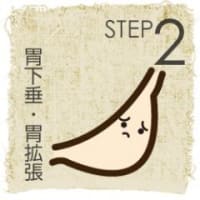
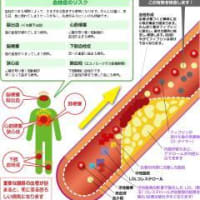

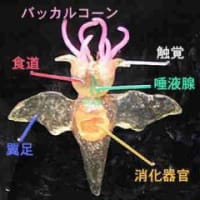

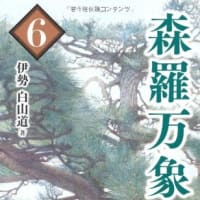
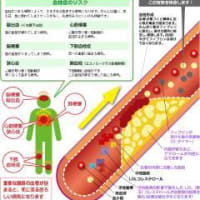

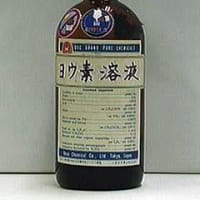
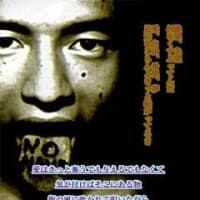
※コメント投稿者のブログIDはブログ作成者のみに通知されます